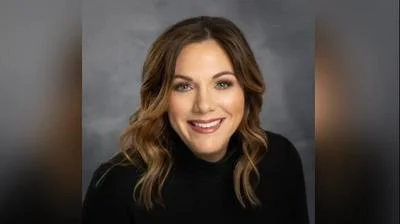Chicago Police Department Superintendent David Brown spoking with reporters earlier this week about the city's gun turn-in campaign | twitter.com/Chicago_Police/status/1571893195079811075
Chicago Police Department Superintendent David Brown spoking with reporters earlier this week about the city's gun turn-in campaign | twitter.com/Chicago_Police/status/1571893195079811075
Illinois GOP comments on Firearms Owner Identification card laws and gun violence
During a Joint Committee on Administrative Rules (JCAR) meeting, Republican lawmakers questioned the Illinois State Police (ISP) over their assertion that they had no authority to deny a Firearms Owner Identification (FOID) card to the alleged Highland Park shooter, Capitol News Illinois reported. The alleged shooter, Robert Crimo III, had applied for a FOID card to allow him to purchase firearms in 2019, just 3 months after an individual filed a clear-and-present danger report because Crimo had threatened to "kill everyone." Crimo was not arrested after that incident, and although the Highland Park police forwarded the report to ISP, ISP discarded it because Crimo did not have a FOID or a pending application at that time. ISP stated at the meeting that its hands were tied because of rules in place at the time. Several weeks after the July 4 shooting, ISP issued a new emergency rule stating that it will maintain clear-and-present danger reports, even if the subject of the report does not have a FOID or a pending application. During the JCAR meeting, the rule was allowed to stand.
State law allows local law enforcement officials and school administrators to file "clear and present danger" requests with the Illinois State Police (ISP) in the event that they believe someone, "if granted access to a firearm or ammunition, pose an actual, imminent threat of substantial bodily harm to themselves or others," according to the form, NBC reported. ISP can then reject a FOID card application if the individual has submitted one, or revoke a FOID card that has already been issued. In September 2019, Highland Park police sent a clear and present danger report to ISP regarding the alleged July 4 mass shooter, after the young man threatened to "kill everyone" in his home. Local law enforcement confiscated 16 knives, a dagger and a samurai blade from the residence, but returned them later that day. Several months after that incident, the suspect filed a FOID application, which was approved. He subsequently purchased 5 weapons legally over the next two years.
After a 2019 mass shooting at an Aurora workplace that left 6 people dead and 5 police officers injured, Gov. Pritzker signed measures into law aimed at reforming the state's gun control processes, the Du Quoin Call reported. The law, which took effect on Jan. 1, 2022, provided funding and established a task force to assist with confiscating firearms from people who have had their FOID cards revoked. The bill also charged the state police with monitoring state and federal databases of gun-related crimes to identify people who should not be allowed to own firearms.
In an opinion piece for Real Clear Politics, Republican candidate for Illinois Attorney General Thomas DeVore expressed dismay over the increase in violent crimes in Chicago and its suburbs and concern that the implementation of the SAFE-T Act in Jan. 2023 will contribute to an even greater increase in crime, calling the bill "anti-police, pro-criminal." DeVore criticized Cook County State's Attorney Kim Foxx and incumbent Attorney General Kwame Raoul for supporting policies that lead to more violent criminals being released onto the streets.
EveryTown For Gun Safety ranks Illinois' gun control laws the 6th strictest in the country, noting the requirement for background checks on all gun sales and an Extreme Risk law. Approximately 1,505 people in Illinois are killed as a result of gun violence each year.
There have been 444 murders and 1,885 shooting incidents reported in the City of Chicago this year as of Aug. 28, according to data from the Chicago Police Department






 Alerts Sign-up
Alerts Sign-up